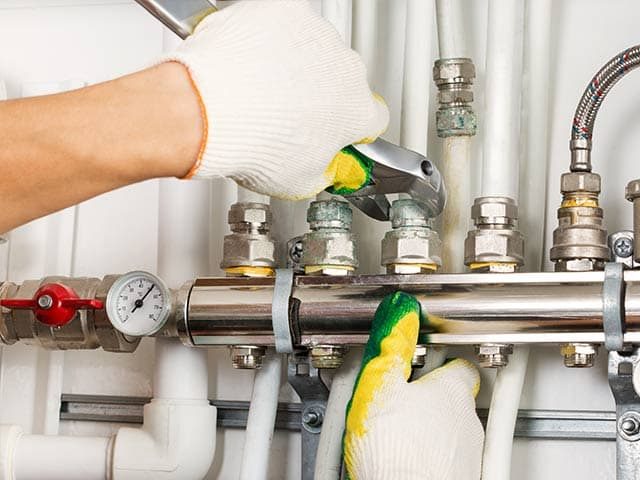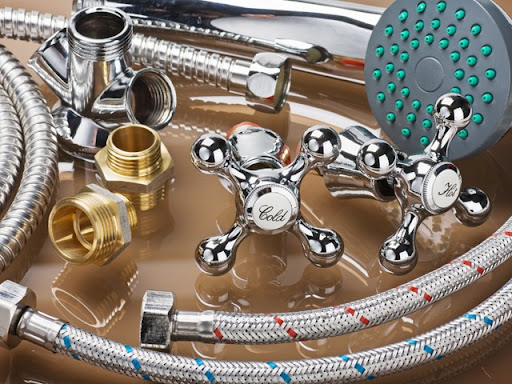
Hard water is a common woe for homeowners, causing various issues ranging from scale buildup in pipes to dry skin and dull hair. While it may seem like a minor inconvenience, the long-term effects of hard water can wreak havoc on your plumbing system. Fortunately, there are practical steps you can take to mitigate these effects and protect your plumbing infrastructure. In this comprehensive guide, we’ll explore the causes and consequences of hard water and provide actionable tips for safeguarding your plumbing system.
Understanding Hard Water
Before diving into solutions, it’s essential to grasp what hard water is and how it differs from its counterpart, soft water. Hard water contains high levels of dissolved minerals, primarily calcium and magnesium, which it absorbs as it flows through limestone and chalk deposits in the ground. These minerals can leave behind residues, known as limescale, that accumulate over time and clog pipes, faucets, and appliances.
Soft water, on the other hand, has lower mineral content because it undergoes a process—typically through ion exchange or reverse osmosis—to remove these minerals. As a result, it’s gentler on plumbing fixtures and reduces the occurrence of scale buildup.
The Impact of Hard Water on Your Plumbing System
The effects of hard water extend beyond mere inconvenience. Here are some common problems associated with hard water and their implications for your plumbing:
- Scale Buildup: As minerals precipitate out of hard water, they form limescale deposits on the interior surfaces of pipes and appliances. Over time, these deposits can restrict water flow, leading to reduced water pressure and increased energy consumption as appliances work harder to overcome the obstruction.
- Corrosion: Hard water can exacerbate corrosion in metal pipes and fixtures, particularly those made of copper or galvanized steel. The minerals in hard water react with metal surfaces, accelerating the corrosion process and shortening the lifespan of plumbing components.
- Appliance Damage: Household appliances such as dishwashers, washing machines, and water heaters are particularly susceptible to damage from hard water. Limescale buildup can impair their efficiency and functionality, leading to costly repairs or premature replacement.
- Skin and Hair Issues: Hard water can leave a residue on skin and hair, causing dryness, irritation, and dullness. Furthermore, soap and shampoo may not lather as effectively in hard water, requiring larger quantities to achieve the desired cleanliness. If you are interested in learning more about protecting your plumbing system, check out https://hi-techplumbingandair.com/plumbing/backflow-prevention/ to know more.

Tips for Protecting Your Plumbing System
Now that we understand the implications of hard water, let’s explore some effective strategies for mitigating its effects and safeguarding your plumbing system:
- Install a Water Softener: A water softener is a specialized filtration system that removes minerals from hard water, replacing them with sodium ions through an ion exchange process. By installing a water softener in your home, you can prevent scale buildup, extend the lifespan of your plumbing fixtures, and enjoy the benefits of softened water throughout your household.
- Use Descaling Agents: In addition to a water softener, regular use of descaling agents can help dissolve existing limescale deposits in pipes and appliances. These agents typically contain acidic compounds that break down mineral buildup, restoring water flow and improving appliance efficiency.
- Flush Your Water Heater: Hard water can accelerate mineral buildup in your water heater, reducing its efficiency and potentially causing overheating or damage. To prevent these issues, flush your water heater periodically to remove sediment and scale deposits. Consult your manufacturer’s guidelines for recommended flushing intervals and procedures.
- Clean Faucets and Showerheads: Limescale deposits can accumulate on faucet aerators and showerheads, affecting water flow and pressure. Periodically remove and clean these fixtures to remove mineral buildup and ensure optimal performance. Soaking them in vinegar or a commercial descaling solution can help dissolve stubborn deposits.
- Invest in a Water Filtration System: While water softeners are effective at removing minerals, they may not address other impurities present in your water supply, such as chlorine, sediment, or organic contaminants. Consider installing a whole-house or point-of-use water filtration system to improve water quality and protect your plumbing system from a broader range of pollutants.
Conclusion
Dealing with hard water can be a challenging task, but with the right approach, you can minimize its impact on your plumbing system and enjoy the benefits of clean, healthy water. By installing a water softener, using descaling agents, and implementing regular maintenance practices, you can prolong the lifespan of your plumbing fixtures, improve water quality, and save money on repairs and utility bills. Don’t let hard water dictate the condition of your plumbing—take proactive steps to safeguard your home and ensure a reliable water supply for years to come.
